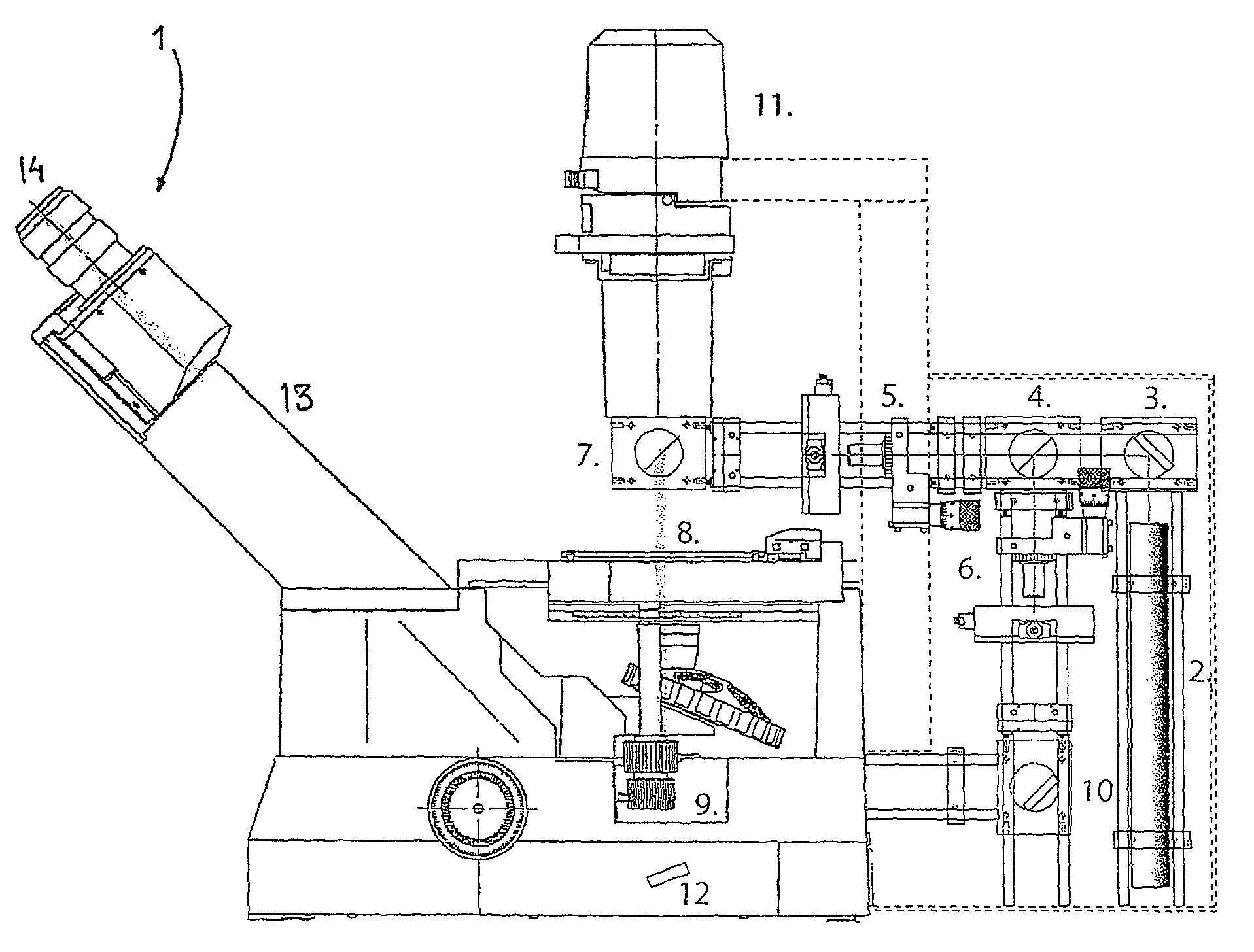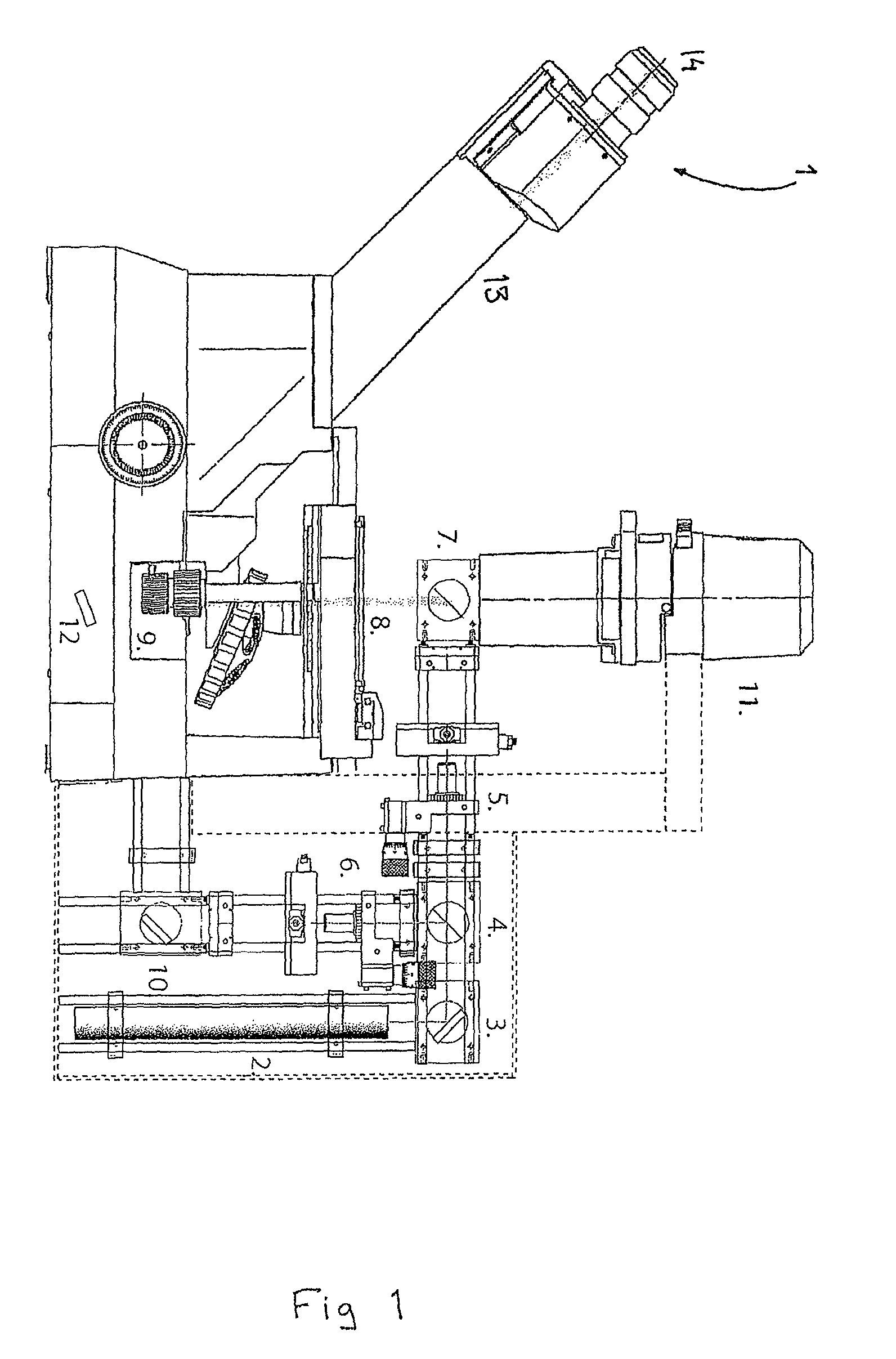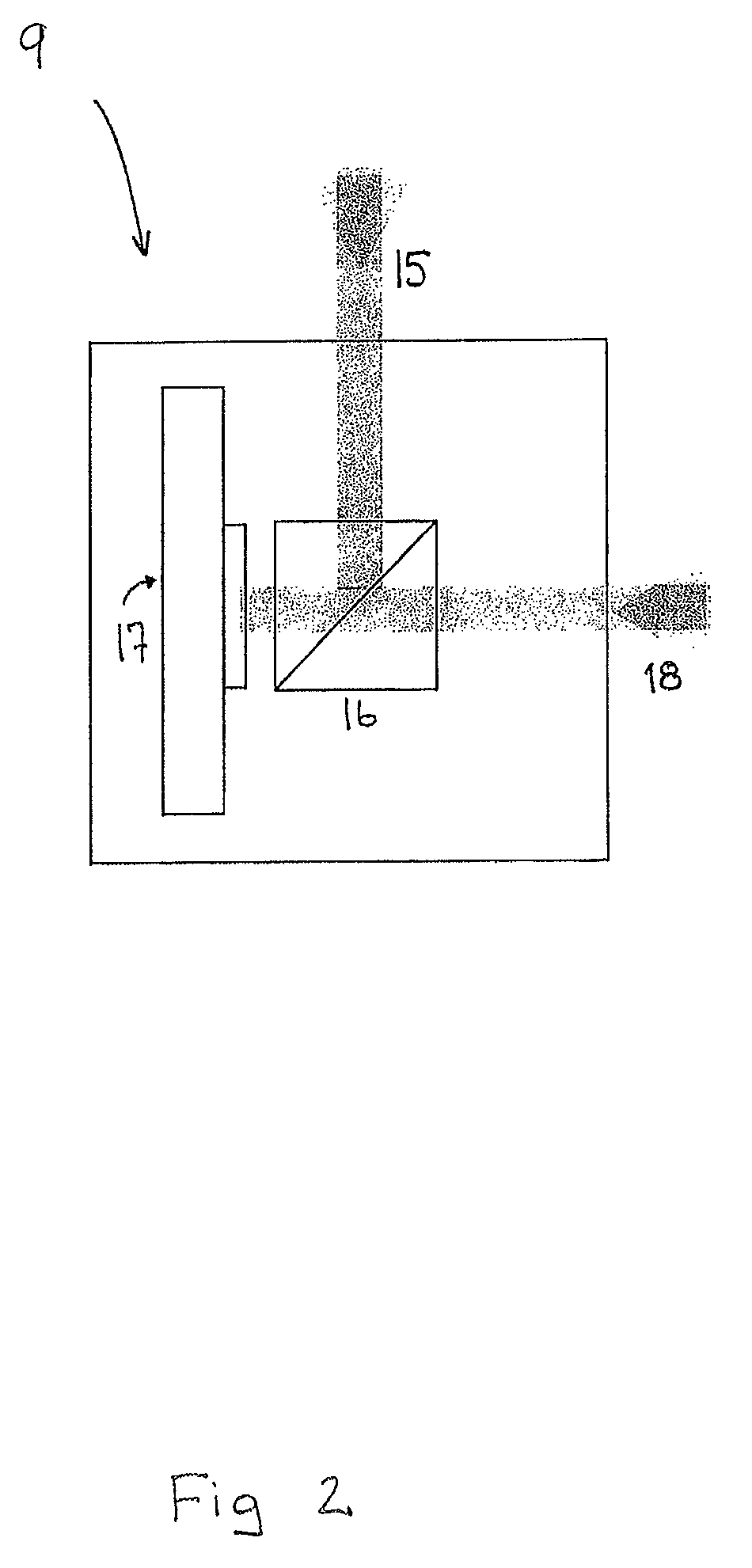Method and apparatus for analysis of a sample of cells
a cell and method technology, applied in the field of cell and method and apparatus for analysis, can solve the problems of unsatisfactory approach in many aspects, time-consuming and hence cost-intensive, interference with light, etc., and achieve the effect of simplifying and complementing the analysis method
- Summary
- Abstract
- Description
- Claims
- Application Information
AI Technical Summary
Benefits of technology
Problems solved by technology
Method used
Image
Examples
Embodiment Construction
[0028]The following description focuses on an embodiment of the present invention applicable to a device and a method for analyzing a sample of cells without influencing the cells by the use of digital holographic microscopy.
[0029]FIG. 1 illustrates an embodiment comprising a phase contrast microscope 1. The embodiment further comprises a laser 2, such as a He—Ne laser, emitting light at a wavelength of 633 nm.
[0030]The light beam from the laser 2 is directed via a mirror 3 towards a first beam splitter 4 dividing the beam into an object beam and a reference beam. The object beam passes through a spatial filter 5, towards a second beam splitter 7. A sample 8 is arranged so that the object beam passes through the sample before reaching a beam collector device 9. The reference beam passes through a spatial filter 6 and is then reflected by a mirror 10, which diverts the reference beam towards the beam collector device 9. As shown in FIG. 2, the reference beam 18 and the object beam 15...
PUM
 Login to View More
Login to View More Abstract
Description
Claims
Application Information
 Login to View More
Login to View More - R&D
- Intellectual Property
- Life Sciences
- Materials
- Tech Scout
- Unparalleled Data Quality
- Higher Quality Content
- 60% Fewer Hallucinations
Browse by: Latest US Patents, China's latest patents, Technical Efficacy Thesaurus, Application Domain, Technology Topic, Popular Technical Reports.
© 2025 PatSnap. All rights reserved.Legal|Privacy policy|Modern Slavery Act Transparency Statement|Sitemap|About US| Contact US: help@patsnap.com



